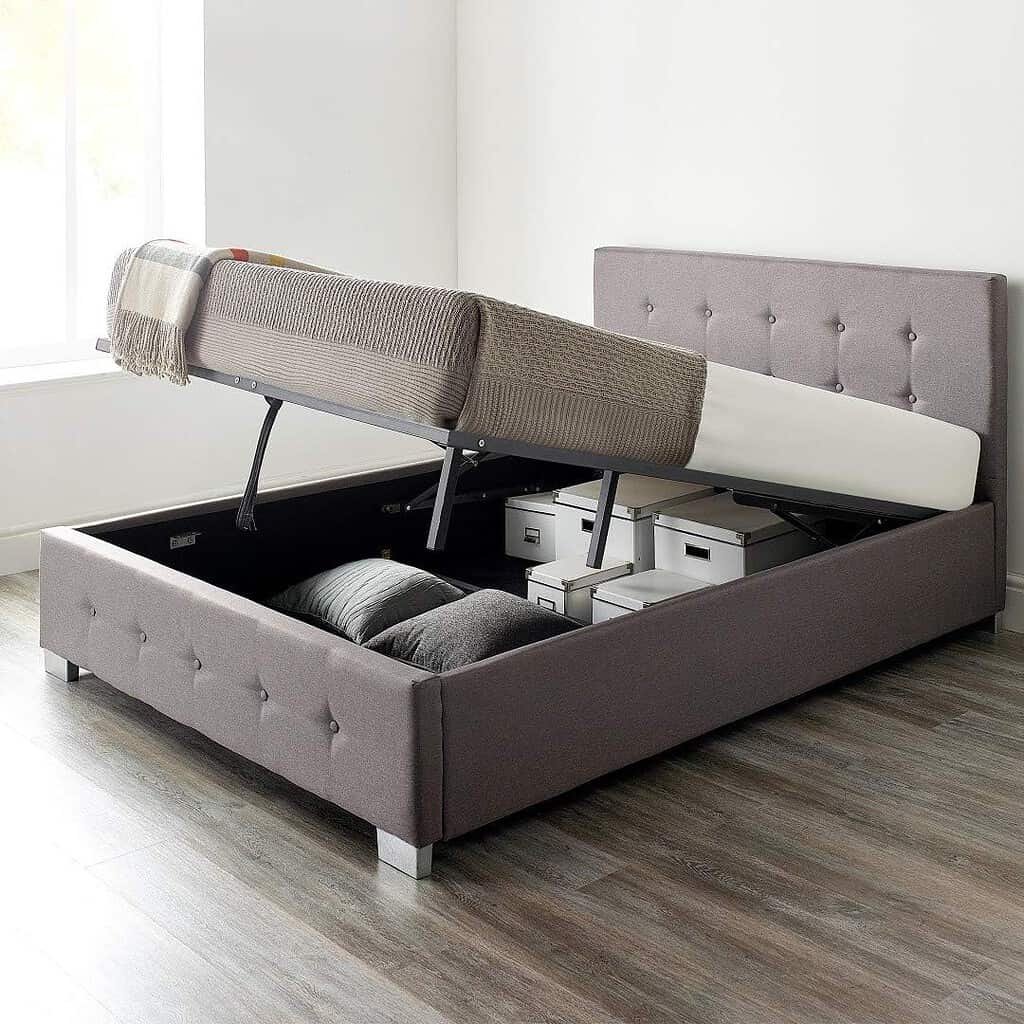Should I let my pets sleep in my bed?
Pets are pretty commonly the most beloved parts of our homes and are often parts of our families. When it comes to bedtime, owners will often allow their dogs, cats, and even rabbits to try to sleep with them in the bed. This might be at the end of the bed, under the bed, or even right next to you – but should this be the case? In today’s blog article, we look at whether you should let your pets sleep with you in your bed. Let’s jump into it.
Should I Let My Pets Sleep in My Bed
The short answer to this question is – you decide. Pets are like family to many of us, and if your pet and you feel comfortable with them sleeping in your bedroom or bed, then that’s on you to decide. Most people say sleeping with a pet is a great feature to wake up to, but this has some downsides. Below, we’ve made a list of all the risks regarding letting your pet sleep with you, which you should consider before making the decision.
Risks of Letting your Pets Sleep in your Bed
- Soiling the Bed (Urine/Feces) – Although most cats and dogs are trained enough to know where and when to use the bathroom, some animals, even cats and dogs, may not or could have an accident. An unlikely but significant factor in deciding if your pet should sleep with you should be around if you can trust it to take it elsewhere to do their business. Although uncommon, if your pet urinates or is sick/excretes on your bed, you could be in for some thorough cleaning or even replacing your mattress. We have written a guide on how best to clean your mattress and bed should this happen, but be warned – it’s not too much fun.
2. Allergies/Allergens/Asthma – Another factor to consider is your health. Many people around the world suffer from allergies and asthma. Pets, or at least their hair and the bacteria/dust/allergens they can carry within their fur and skin, can all find their way into your system by allowing your pet to sleep on the same bed as you. Although these may be subject to your immune system, these possibilities shouldn’t be overlooked if you or your partner consider having your furry friends on your bed.
3. Can Disturb your Sleep – One main factor in allowing your pet to sleep on your bed is how they can disturb your sleep. Pets generally don’t care when they sleep, they will pick a spot and lay down for a nap, but we, on the other hand, can’t just do that – or at least not reliably. When a pet sleeps and sleeps for a while, they can often dream about running and roaming free, which can lead to some pretty extravagant motions as they escape the other cats and dogs in their dreams. This can be an early alarm clock for humans when your pet’s twitchy paw is hitting your legs or even being vocal at unsociable hours. A relatively small study of 12 women who slept with and without their pets beside them said that whilst sleeping with their pups, the human movement increased and led to lower-quality sleep, with one case even leading to sleep deprivation.
4. Human and Animal Injury – Depending on your pet, bed size, and twitchiness when sleeping, sleeping with a pet could lead to unwanted injury for both involved. On the one hand, you may accidentally lay on the part of your pet or accidentally knock your pet whilst they’re sleeping, which can lead to a rapid and very aggressive bite or bark which doesn’t only disturb your sleep but can lead to infection, and a bad mark in the morning. On the other hand, you could also injure your pet, but this is uncommon and isn’t usually bad – but minor knocks leading to the statement above.
5. Pet-Transmitted Illnesses – Another aspect to consider is that pets are not the cleanest. As much as we wash and promote their health/cleanliness – they still carry bacteria, parasites and quite aggressive illnesses that can be transmitted to humans just by being in the nearby vicinity. Although it’s unlikely, you can become quite unwell from these parasites and bacteria, so when sleeping, unless you have a great immune system and don’t mind the risks of becoming a little bit sick now and then – you should consider this when making the decision.

Do Pets Prefer Sleeping on their Owner’s Beds
There’s no question about it that pets (once domesticated) are much more open to being near you at all times. Dogs, in particular, won’t like it too much when you leave their side, and cats aren’t too far behind that either – however, scientific studies haven’t delved too deep into this theory.
On the surface, allowing pets to sleep in your room – but not necessarily on your bed- can lead to your pets and yourself reducing anxiety and feeling a little more secure knowing your fluffy companions are nearby.
Does allowing Pets to sleep on your Bed Negate Dominance
No – a common myth called the “dominance theory” is that humans must consistently show our pets that we’re dominant in the household, but this theory is all bark and no bite. Allowing your pets to sleep wherever and whenever they want has no effect based on dominance, as long as they know not to sleep on your bed if you wish to stop that.
Overall, our cute best friends are part of the family to many of us, and although you can get some quite fancy pet bets – the human bed may or may not be the best place for them to sleep. Once again, this decision is yours, and there are some benefits to allowing this, but in most cases – you need to understand the risks of doing so; whatever you choose – we hope this guide has helped you.



